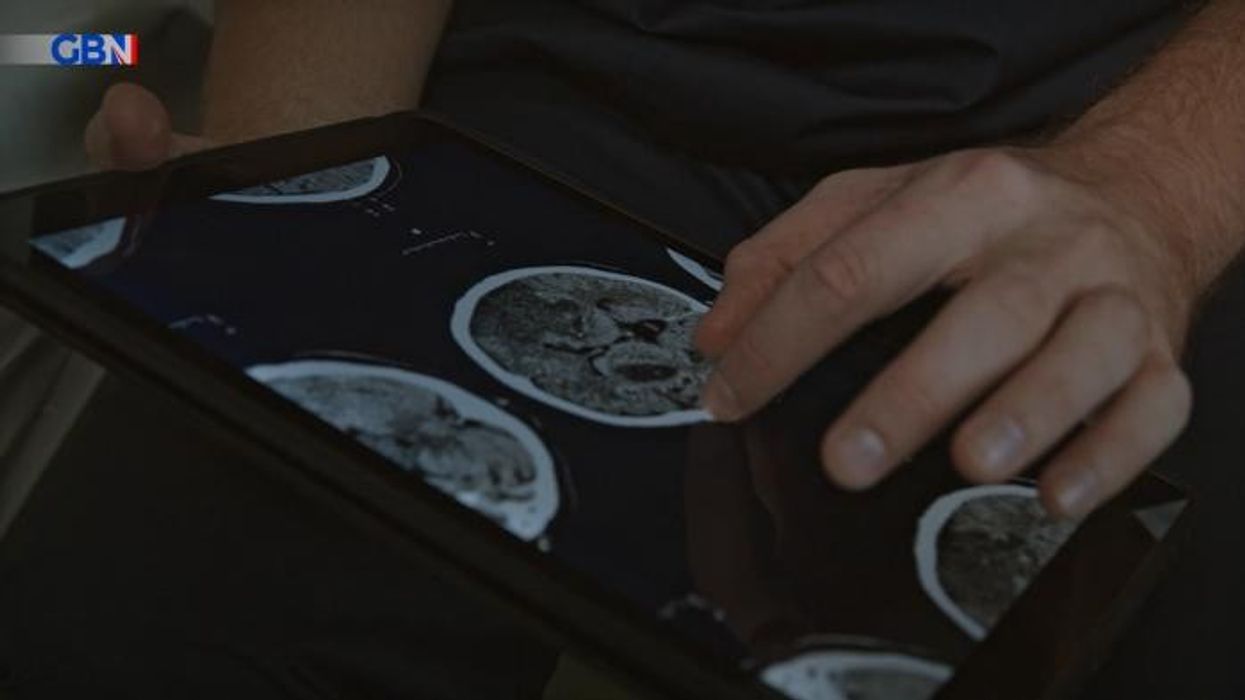'I'm a neuroscientist - these changes in smell and taste may signal dementia even if memory is intact'

WATCH NOW: Five lifestyle habits make the brain 'resilient' against dementia
|GBN

Early warning signs of the condition can show up in surprising ways that have nothing to do with forgetfulness
Don't Miss
Most Read
Dementia isn't just about forgetting where you left your keys. The condition can announce itself through unexpected changes that many people might dismiss as normal ageing.
Neuroscientist Dr Christopher U. Missling has revealed that even sensory changes often appear before the memory problems we typically associate with dementia.
From shifts in how we see and smell the world to changes in personality and behaviour, spotting the more subtle symptoms early could make all the difference in getting the right help at the right time, the neuroscientist explained.
Dr Missling told GB News: "Sensory changes like diminished vision, smell, or hearing can precede memory issues in dementia and serve as early warning signs.
TRENDING
Stories
Videos
Your Say

The earlier dementia is caught, the better chance people have of maintaining their quality of life
|GETTY
"While memory loss is the hallmark of dementia, early signs often appear in more subtle ways that people overlook."
Specific changes may include struggling to work out how far away things are or finding it hard to understand what they're looking at. Even getting around places they know well becomes tricky.
A weaker sense of smell is particularly common with Alzheimer's and Parkinson's-related dementias, according to Dr Missling.
Some patients report hearing problems that show up as difficulty keeping up with chats when there's background noise.
The tricky part is that many of these changes come on naturally as we get older, but when they stick around or happen alongside changes in behaviour, it's worth getting checked out.
Dr Missling explained that changes in how people act and speak should also be closely monitored.
These include struggling to make plans or solve problems, finding it hard to communicate, making poor decisions, and developing unusual eating habits. Some people lose their ability to feel empathy or start repeating the same behaviours over and over.
This can also include language problems, as some people might struggle to find the right words, speak in a jumbled way, or keep saying the same things.
As damage to the brain worsens, many people with dementia experience mood changes like feeling more anxious, becoming depressed, or seeming emotionally flat.
This is because the disease attacks the regions responsible for communication, emotional control, and social awareness, which often become affected long before memory problems become obvious.
LATEST DEVELOPMENTS

'Symptoms of dementia can mimic stress or ageing'
|GETTY
Dr Missling noted: "These symptoms can mimic stress or ageing, but when persistent, they may indicate underlying cognitive decline and warrant medical attention."
He stressed that catching these warning signs early really matters. When doctors can identify dementia sooner, they have more options for treatment and support. It also means families get more time to plan ahead and make important decisions.
The findings come as a large study of over half a million people revealed that even a single glass of wine with dinner might not be as harmless for the brain as we've long believed. Instead, the findings show that alcohol consumption at any level appears to harm brain health.
Our Standards: The GB News Editorial Charter










